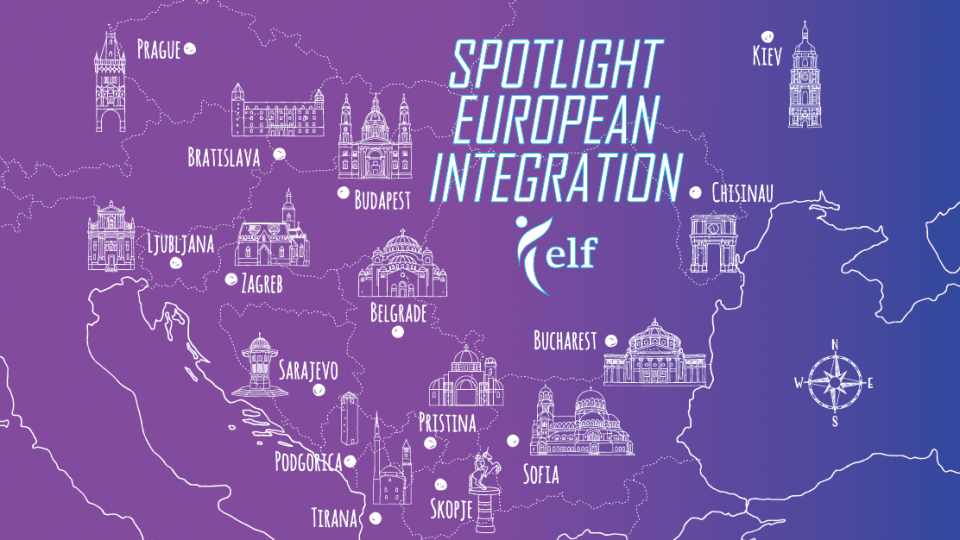Blogpost by Roman Jakič, Chairman of the Liberals of South Eastern Europe, former Slovenian Defence Minister
EU enlargement and the Liberals: a long-term belief
It was the 26th of September 2001, almost 20 years ago, when theCongress of the European Liberal Democrat and Reform Party (ELDR, the predecessor of today ALDE Party) was kicking off in Ljubljana main Congress Hall “Cankarjev dom”. Back then, the ELDR expressed a strong belief that Slovenia should not be left waiting to become a full-fledged EU member until other candidates are prepared for accession. At the opening of the congress, the leader of the ELDR MEP’s group in the European Parliament, Mr. Bertel Haarder, said at the opening of the three-day ELDR:
“If Slovenia is ready it should have the opportunity to become a member of the EU even though some other countries may not be ready to take this step yet”, Haarder believed.
ELDR Vice-President Lord Alderdice, at that time Speaker of the North Ireland National Assembly, stated that Slovenia had proven it is prepared for EU membership. He believed Slovenia and Estonia, where liberals were the ruling parties, had made more progress in the accession process than other candidate countries. He also highlighted how important it was to observe the rules adopted by the EU itself and hoped Slovenia will become a full member of the Union in 2004.
As a leading member of the Liberal Democracy of Slovenia, which was hosting the congress, I agreed with Haarder and Lord Alderdice, that if the enlargement process should stall, both EU members and candidate countries would be in trouble.
The congress was also attended by the late Hans-Dietrich Genscher former Foreign Minister and Vice-Chancellor of Germany, who was described by Slovene Prime Minister and long-standing President of LDS, dr. Janez Drnovšek as an “extremely good connoisseur of the situation in Europe, its dilemmas, crossroads and prospects, but also real possibilities of Economic integrations”.
The majority of the 300 delegates in that Congress, especially those coming from Central and Eastern European countries also knew that Genscher was a declared friend of Slovenia and Croatia. All crucial moments in the history of both countries had been connected with his name – the plebiscite, the war, the independence process and the road to international recognition. Genscher, his Free Democratic Party (FDP), and Germany as a whole were “sponsors and lobbyists” for the Slovenian and Croatian bids for European Union and NATO membership.
The same was true at that time with the Baltics States. It was the Nordic sponsors that were “pushing” them for membership. For the Cypriots, it was the Greeks, and later on, for the Romanians, it was the French. Those “sponsors and lobbyists” were European leaders who were the first (already in late eighties) to detect and endorse democratic changes in Central and Eastern Europe. They were able to see far beyond the Berlin Wall, understanding the unique opportunity that would eventually open up with its fall. They significantly contributed to us being able to use this opportunity, to gain independence and become an equal member of the democratic and united Europe.
Recently a number of liberal parties and individuals in South Eastern Europe published a document ‘European Voices in the Western Balkans: A Liberal Perspective on the Enlargement of the European Union’. It was produced with the support of the European Liberal Forum and a couple of its member organizations. An interesting online debate involving the representatives from the region and the European Union brought to the surface an important question: is there a Western Balkans voice in the EU? With the enlargement being low on the priority agenda of the EU, the process of integrating the Western Balkans in the Union is very different from the previous enlargement experiences.
Enlargement: state of the art
What is the situation today concerning the enlargement process of the European Union? Western Balkans Countries are still knocking on the European Union’s door begging to be admitted. Some of them have done so for decades. Meanwhile, EU member countries are talking about how important is deepening of the Union before widening. The EU is facing the so-called “enlargement fatigue” phenomenon. Again. Like in my description of the time above. The difference is that Montenegro, North Macedonia, Albania, Serbia, Bosnia and Hercegovina, and Kosovo have almost nobody to rely on.
What Western Balkans need, besides a voice in the EU institutions is a loud voice of the political leaders in the EU Member States. There is in fact no European leader who is capable of being incisive enough – or willing enough – to support EU enlargement in the Western Balkans.
Sponsors needed
The countries in the Western Balkan region need serious EU sponsors in their bid for membership. Sponsors that will help them overcome the challenges of the EU integration process. Sponsors who will convince their own partners in the EU to fulfil its obligations regarding further enlargement, as this is the only way to preserve its credibility. Sponsors who will be able to see far beyond their narrow party and state interest and recognize that enlargement is bringing peace, security, political stability, economic development, and social cohesion in those countries. And that this is of strategic importance not only for the Western Balkan region but for the EU and the entire international community. Sponsors who will truly believe that the future of the Western Balkans countries is full EU membership. Sponsors who will for that reason accelerate the process which had started decades ago. Sponsors whose role will be to find a true balance between a Europe of integration, Europe of enlargement and Europe for everyone.
Our main task for the 21st century is to complete the unification of Europe. This means to conclude the enlargement process of the EU which started after fall of the Berlin Wall. For that, the EU enlargement needs a serious push in 2021 and serious sponsors to help: it needs a new Hans-Dietrich Genscher.
